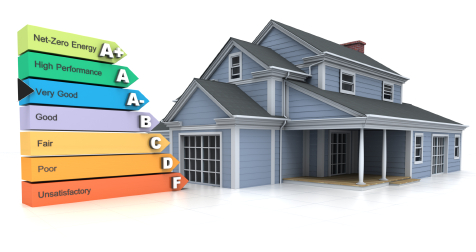No products in the cart.
Green Home Features: MLS Responds to Buyer Demands
The increasing adaptation of green home features in the MLS is a new driver for real estate listings. As growing numbers of buyers seek more eco-friendly and “healthy” homes, builders and real estate professionals must change their focus to respond to trends and satisfy buyer expectations.
Part of it is spreading the word — up front — that a home is energy-efficient and has a variety of included features that make it sustainable and environmentally desirable.
What Does Green Really Mean?
In addition to energy-efficient appliances and water-saving plumbing features, many new home builders today consider air quality and material conservation as prime targets for their green-building efforts. There is increasing evidence that “healthy” homes contribute to the health and happiness of occupants, and there is also data to support the belief that buyers are willing to pay more for homes that are green. Some green features are mandated by building code, but many others are optional and extremely desirable.
Builders and owners are apt to specify materials that are environmentally-friendly, chemical-free and non-toxic, but green principles and practices go beyond the structural components.
Homeowners and prospective buyers are looking for the “pluses” of green — a focus on positive aspects that make life easier and more enriching, that reduce carbon footprint and contribute to global resource management.

What Part Do Real Estate Professionals Play?
Just as builders have embraced advertising the benefits of energy efficiency and the steps they’ve taken to incorporate green technology into their floorplans and housing stock (whether that’s through LEED, Energy Star, or RESNET HERS scores), real estate professionals have an equal responsibility to educate themselves on green building principles and to advertise those benefits to potential home buyers.
By emphasizing features that constitute action “hot buttons,” real estate agents and brokers can help a home stand out from the others. The Green Resource Council of the National Association of Realtors recognizes the growing need for a standardized way to describe and market green homes.
Although many local multiple listing services have yet to institute handy checklists or standards by which to judge green homes, some locations have taken the first steps. Landmark work in North Carolina may soon be available nationwide so that a local MLS can simply “turn on” the features. According to Ryan Miller of the NC Building Performance Association, the Triangle Multiple Listing Service would “be the first MLS in the country to accept auto-populated ‘green’ data sourced from local, state and national third party certification and verification programs including HERS Ratings, Home Energy Score, ENERGY STAR®, NGBS and many of the others active in North Carolina.”
In addition, green certifications such as NAR Green and LEED Green Associate exist for real estate agents who are proactive in their efforts to learn more about commercial and residential green building techniques. Individual brokerage firms and training companies like Everblue host seminars and educational programs for real estate agents to learn about sustainability, green building, and building science principles.

As green features become more commonplace, they also climb higher on the demand list among potential buyers. That, in turn, spurs more green building – new construction and retrofits. This also often influences a seller’s decision to make improvements prior to listing. In addition to location, price and square footage, green features and smart technology are among the most-frequently mentioned considerations that influence buyer decisions.
Different Types of Green Home Features
Green really does mean different things to different people. While it may be almost impossible today to find toilets, faucets and shower heads that waste water, there are various levels of water efficiency available, just as there are “on demand” water heaters that save energy by not requiring a tankful of hot water at all times. Energy Star appliance ratings also are variable, allowing buyers to choose the level of efficiency they require.
Beyond power and water, however, there are a host of other green features to entice today’s home buyer:
- Solar panels
- Thermo-pane, low-E windows
- Energy-efficient lighting and air conditioning
- Use of wood from sustainable forests
- Recycled and reused materials, and well as local sourcing of materials
- Blown-in cellulose wall insulation to boost R-value
- Fresh air ventilation system
- Drip irrigation, or satellite-controlled watering systems that account for weather conditions
- Built-in niceties, including such things as designated recycling stations and backyard composters
This, of course, is not a full list of green features. Home automation and smart home technology also overlaps into the sustainable category by allowing owners to control their home environments from afar, and to adjust temperatures, lighting levels and other systems in accordance with personal needs.
For more information about the greening of the MLS, please contact Gary Ashton or call Everblue at (800) 460-2575 to discuss sustainability training options.
Post by Gary Ashton, Realtor, with The Ashton Real Estate Group of RE/MAX Advantage